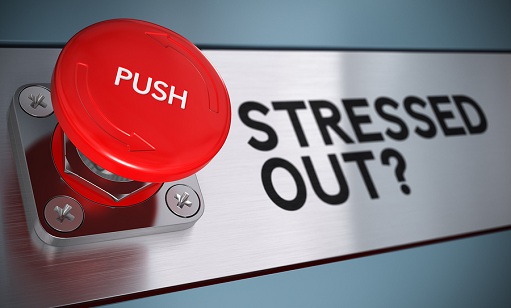
Usman Ghani (May 28, 2015)
Customer Service Representatives have one of the most stressful jobs in the organization, since they are required to directly interact with different kinds of customers and help sort out their grievances. Constantly dealing with annoyed customers and effectively resolving their problems can be stressful for CSRs. In order to deliver consistent service; it is essential for representatives to manage and mitigate work related stress. High level of stress at work can adversely impact the performance of CSRs, which in turn would affect the customer satisfaction level. Effectively coping with stress is also important to stay motivated and maintain work morale. Some of the ways through which CSRs can manage work related stress are as follow:
A prerequisite for performing well as a customer service representative is detaching oneself personally from the task at hand. Do not take a customer’s anger and remarks personally, understand that it is because they are frustrated by a situation or a service failure. This will not only enable CSRs to avoid stress and frustration, but will encourage objective thinking and quicker resolution.
Customer service representatives should plan, organize and schedule all tasks and activities. This will help CSRs to work in an efficient manner and get all the required work done without staying late or working from home. CSRs should be encouraged to keep a work plan, which can be updated regularly with a to-do list. Smartphone apps can come in handy for cross synchronization across all platforms for greater accessibility and convenience.
A lot of stress can be avoided if CSRs stay ahead of their schedule and don’t put off important tasks until the last minute. Employees often feel stressed when they are overwhelmed at work because they have to meet deadlines on which they are falling behind.
CSRs should take frequent short breaks to stay relaxed. Constantly dealing with customers can take a toll on the performance and mood of CSRs. It must be ensured that these breaks do not impact the work, and there are other employees who are covering for the employees on break. Moreover, CSRs should take the standard lunch break and eat a proper meal.
Stress is often linked to unhealthy eating habits and dehydration. CSRs should ensure that they have a balanced and healthy diet, which contains all important nutrients. A healthy diet would enable CSRs to better cope with stress. Too much caffeine can add to the stress level, therefore, keep a check on it. Try to drink more water, fresh juices and other caffeine-free beverages. Some employees smoke in order to reduce stress, which is a defeatist strategy because it discourages addressing the real issues which are causing stress and it ends up adversely impacting their health.
In order to avoid burnout, CSRs need to understand the importance of a healthy work-life balance. When employees leave work, they should also stop worrying about work and have a good time at home with friends or family. If employees feel overworked, they should talk to their supervisor and ask for some reprieve from excessive workload. Overtime or taking on additional tasks should be done only in moderation and depending on the stress level. CSRs should take the vacation time and spend that time to relax and recharge. Some companies offer wellness programs to their employees, which can help them cope with stress.
Socializing at work can help reduce stress. Talking to colleagues over tea/coffee takes mind off work for a few minutes, which reduces stress and provides an opportunity for a break.
A good sense of humor at the workplace can help reduce stress. CSRs should work and develop a temperament which allows them to enjoy their work and have fun. Encouraging a work environment where workers can feel at home, boosts creativity and morale. This helps workers cope with stress and distract themselves from the work related stress.

Healthcare workers are entrusted with the great responsibility of caring for people. In order to continually offer comfort and care to people, there are certain skills that healthcare professionals need to master. Of course there are the obvious ones related...
Read More
Creative thinking is one of the most important and sought after soft skills that you need to acquire in an increasingly digital landscape of 2021 and beyond. Creative thinking skills are required in many different job roles to come up...
Read More
Sales are the backbone of any business and great salespeople are an asset for the company. Some people are naturally gifted in the art of persuasive communication and negotiation skills required to convince clients and effectively sell more. However, certain...
Read More